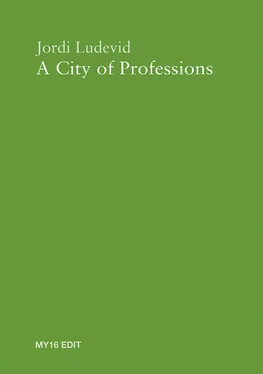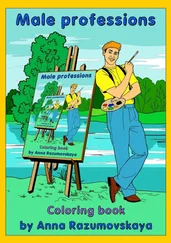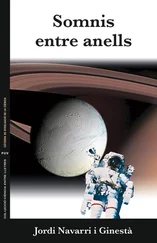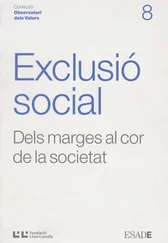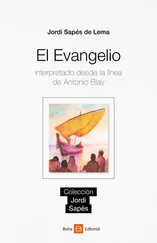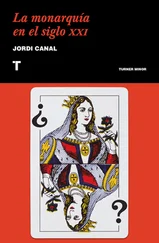Thus, the word craftsmanship designates «an enduring, basic human impulse; the desire to do a job well for its own sake» As Sennett explains, this implies a dedication to learning and developing skills, to growing as a competent worker – a concept that has been conspicuously absence in recent years, in which very little investment has been made in training or educating workers. A job well done, however, takes time. Sennett suggests that 10,000 hours is a reasonable estimate of the time it takes to become a skilled carpenter or musician.
His gaze seems to be directed backwards; it seems to imply an evocation of the Middle Ages and the Renaissance, past eras from which, nevertheless, he extracts key concepts for a contemporary reflection (the craftsman, the workshop), and which are then contextualised in the present, with an eye to the future. It may seem innocuous or marginal, but, as we will see in the following pages, it is not. On the contrary, in the internet age, crafts have emerged as a factor of creativity, regeneration, economic promotion and future employability for professionals.
Sennett’s distaste with the socio-economic reality derived from the absolute predominance of the markets leads him to propose an attitude of resistance, something like an antidote to safeguard professionalism in our times, and he positions himself in favour of a strategy to rebuild a future urban social pact and a new economy.
For his part, Donald A. Schön (Boston, 1930-1997), an American philosopher and educator, is considered an absolutely decisive thinker in the development of the theory and practice of reflective professional learning in the late 20th century. Still today, he is a very important inspirational reference for professionalisation and the ongoing pedagogical revolution. Schön perfectly redefines professionals on the basis of the training they need. He considers that «a professional is someone who knows how to handle practical problems in complex environments». In other words, his position is perfectly in line with the traditional conception of the professional as someone focused on practical knowledge rather than scientific knowledge.
He brilliantly argues how professional praxis is characterised by complexity, uncertainty, instability, singularity and the conflict of values. As a consequence, the technical perspective is not the most suited when it comes to managing education in professional practice. On the contrary, «the professions should be understood as reflective and artistic activities which, in any case, include some technical applications». Hence, Schön proposes looking for a new epistemology for the practice that is implicit in intuitive and artistic processes, in order to educate professionals who will be practicing in situations of uncertainty, instability, singularity and the conflict of values.
Moreover, the problems practitioners face in reality do not appear as well-organised structures. And, of course, the problem of defining the problem does not belong to the category of well-defined problems. According to Schön, problem definition is an ontological process, a way of constructing the world. Technical problem solving will not help us turn a problematic situation into a well-defined problem. Moreover, some conflictive situations are actually cases of conflicts of values, which fall outside the logic of technical rationality.
The practical orientation or «reflection in action» of Schön’s model emerges as a contemporary response intended to overcome the linear and mechanical relationship between a theory or scientific-technical knowledge, understood as «superior», and a practice subordinated to it. Schön studies this ability in depth, understanding it as a process of reflection in action. He posits an awareness of this process as a necessary precondition for understanding professionals’ effective activity when facing unique problems. This reflective process must serve to optimise the response to real situations, given that professionals must use their intellectual resources to respond to the situation, such that real needs can be satisfied in an effective way through a process of analysis and a search for strategies or solutions.
According to Schön, what future practitioners most need to learn about practice is what the training institutions seem least able to teach, putting them in a difficult situation and opening up an opportunity for compulsory continuing education at the hands of professional associations. In the end, we can agree with Donald Schön on one thing that almost no one dares to say: namely that research has not only become detached from the professional world but has become a prisoner of its own agenda, sometimes even becoming an end in itself. Humboldt seems to have won a battle, but the reality is that it has been won by the markets. If there is a crisis of confidence in the professions and their training centres, its origin lies in the epistemology of practice that prevails today. Schön says:
«The question of the relationship between practice competence and professional knowledge needs to be turned upside down. We should not start by asking how to make better use of research-based knowledge but what we can learn from a careful examination of artistry. [...]
•Inherent in the practice of the professionals we recognize as unusually competent is a core of artistry.
•Artistry is an exercise of intelligence, a kind of knowing, though different in crucial respects from our standard model of professional knowledge. It is not inherently mysterious; it is rigorous in its own terms. [...]
•[...] There are an art of problem framing, an art of implementation, and an art of improvisation – all necessary to mediate the use in practice of applied science and technique. [...]
In the early decades of the [20th] century, [...] ‘professionalisation’ meant the replacement of artistry by systematic, preferably scientific, knowledge. [...] However, educators have begun once again to see artistry as an essential component of professional competence».
In fine arts education, remember, it is all about practice. The emphasis is on learning by doing. The artistry of painters, musicians, and designers, bears a strong resemblance to that of lawyers, engineers, managers, doctors, architects and teachers who are extraordinary professionals. It is no coincidence that professionals often make reference to the «state of the art». Thus, with Donald Schön, philo anthropoiè and philo technè merge into a single educational goal: practicum. Therefore, learning a professional art depends on the creation of conditions similar to the ones in workshops, a relevant point on which Richard Sennett (The Craftsman) and Donald Schön (The Training of Reflective Professionals) both agree.26 The art of professionals, ars in Latin, is the equivalent of the Greek technè.
In the 21st century, the art of professionals is founded on a civic and digital ethics, which is gradually taking on its new dimensions by constructing a new craftsmanship – a newly invented kind of craftsmanship that we recognise as not only manual but also digital, a craftsmanship that does not turn its back on the physical world, but which makes full use of fascinating communication and manufacturing technologies.
And although the digital world, immaterial and virtual, is increasingly a part of reality, that reality is far from being exhausted in it. Although we may sometimes forget, the somatism of philo technè and philo anthropoiè make it very noticeable and very evident. The digital world sometimes prevails, but more often than it seems it operates by addition and not only by substitution. The thinking hand is still there, along with the computer.
It is thus interesting to note how, during the different historical periods, Hippocrates’ founding intuition and its two-fold commitment have endured over time, adapting to the socio-cultural and economic changes that have taken place in each era. The philo anthropoiè and the philo technè emerge and interact in very different contexts – in the present, too, with digital disruption and digital craftsmanship in full swing. It is worth recalling once again that the double meaning represented by these two terms is also present in the Latin word for profession, officiis, (‘duties’, but also ‘work completed’), which reveals a clear parallel with Hippocratic philosophy.
Читать дальше
